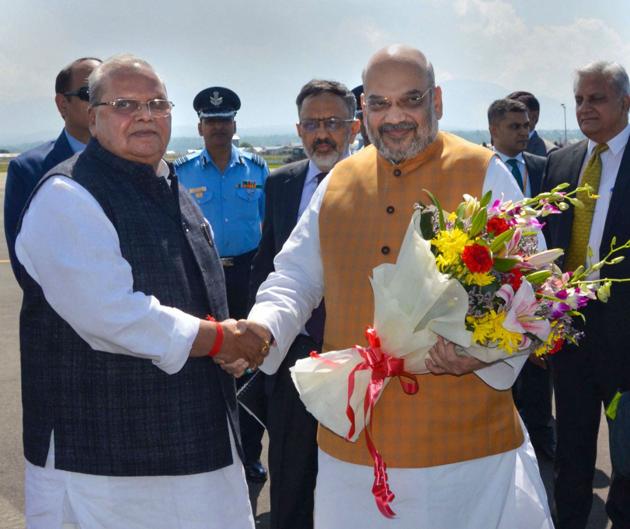Amit Shah brings a new perspective on Kashmir
But the state needs a combination of development and justice
Over the past week, both houses of Parliament have witnessed a spirited, robust debate on Jammu and Kashmir. The context was the decision to extend President’s Rule in the state by six more months (which needed legislative sanction) and the extension of reservations to citizens living near the international border in the state. But this became an opportunity for a wider debate on the particular situation in Jammu and Kashmir — its history; its relationship with the Indian Union; violence and terrorism; the role of Pakistan; New Delhi’s mistakes; the alienation in the valley; the diversity within the state; and democratic practice in the state.

The most important intervention came from home minister Amit Shah. Irrespective of whether one agreed or disagreed, there was little doubt that Mr Shah spoke with utmost clarity and conviction, and laid out the Centre’s thinking on Jammu and Kashmir. He reiterated that the state was an integral part of India, a position everyone in both houses agreed with. He articulated a tough line on terror and said that the Centre would not spare any element which sought to engineer violence Kashmir, including by going across the border if necessary. This was in line with the approach of the Narendra Modi government in its first term. He then expanded the definition of democracy, and said that by holding elections at the panchayat level, the Centre had empowered the grassroots. He also sought to assuage apprehensions that the extension of President’s Rule was a plot to rule the state, without polls.
But it was the larger ideological approach that distinguished Mr Shah. Unlike the Congress and certain other political parties, which are comfortable with treating Jammu and Kashmir as a special case, the Bharatiya Janata Party has always pushed for a more integrationist approach that entails treating it as just another state of the Union. This is why it is against special provisions, which Mr Shah reiterated were “temporary”. The second distinction is that Mr Shah held the Congress responsible for the situation in the Valley, including the reluctance to push across what is now the Line of Control back in 1948 and accepting a ceasefire, going to the United Nations and rigging elections. Each of Mr Shah’s points can invite a counter. A tough policy must not mean a licence to security forces to commit human rights violations. The call to take power away from “three families” must not undermine the National Conference and Peoples Democratic Party, both of which have spoken for India at a difficult time. The focus on only development cannot be a substitute to the issues of justice. But it is clear that Mr Shah will remain deeply invested in the state, and finding a lasting solution to the Kashmir issue may well be a part of what he sees as his legacy.






